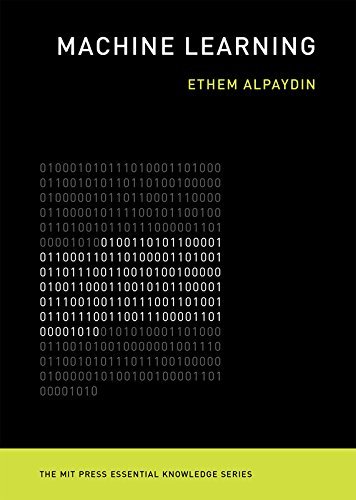What do you think?
Rate this book


232 pages, Kindle Edition
First published January 1, 2016
“Intelligence seems not to originate from some outlandish formula, but rather from the patient, almost brute force use of simple, straightforward algorithms. It"
“Each of us, actually every animal, is a data scientist. We collect data from our sensors, and then we process the data to get abstract rules to perceive our environment and control our actions in that environment to minimize pain and/or maximize pleasure. We have memory to store those rules in our brains, and then we recall and use them when needed. Learning is lifelong; we forget rules when they no longer apply or revise them when the environment changes. Learning"
“After all, this is what learning is: as we learn a task, we get better at it, be it tennis, geometry, or a foreign language"
“What we lack in knowledge, we make up for in data. "
“Now data is cheap and we are all kings and queens of our little online fiefdoms. A baby born to gadget-loving parents today can generate more data in her first month than it took for Homer to narrate the complete adventures of Odysseus."
“With social media, each of us is now a celebrity whose life is worth following. We are our own paparazzi. We are no longer only allotted 15 minutes of fame, but every time we are online we are famous. The social media allows us to write our digital autobiography as we are living it."
“With the number of smart machines continuously helping us in our daily lives, we all become producers of data. Every time we buy a product, rent a movie, visit a web page write a blog or post on social media, even when we walk or drive around, we generate data, and that data is valuable for someone who is interested in collecting and analyzing it. The customer is not only always right, but also interesting and worth following."